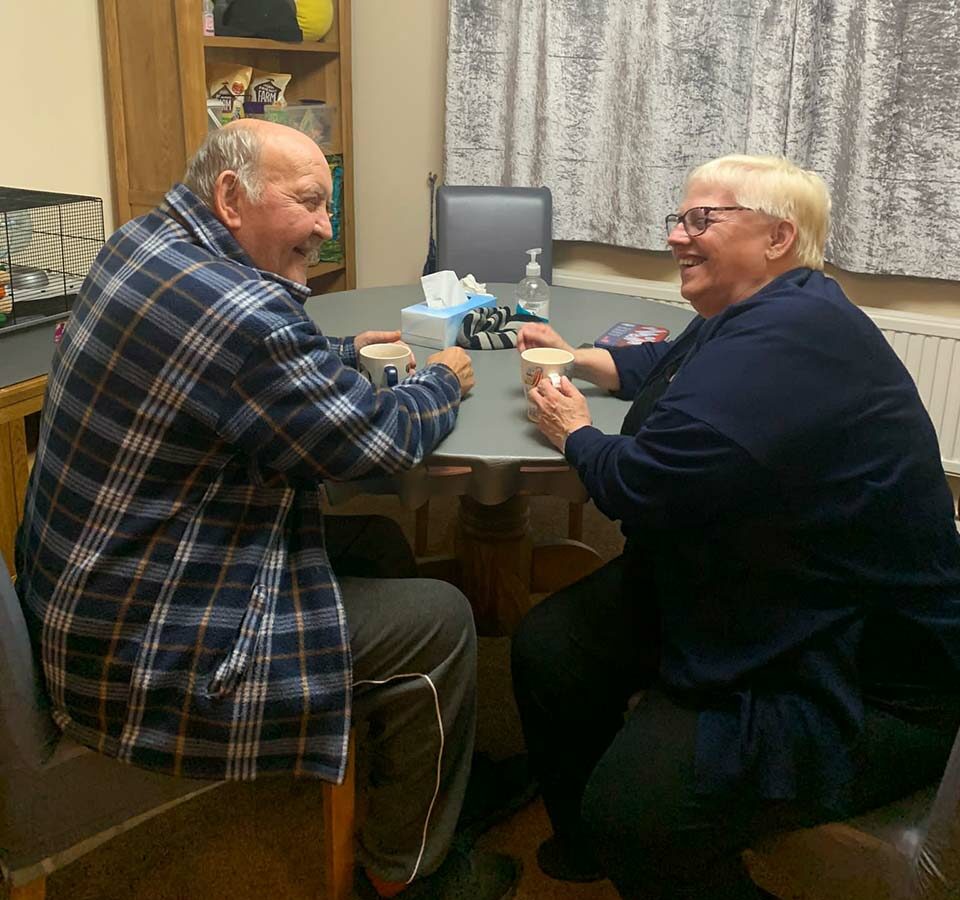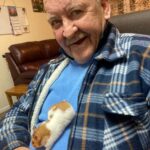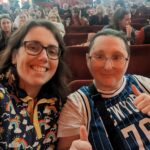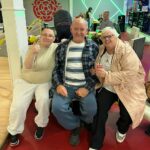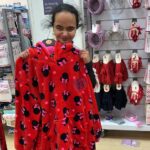Deaf awareness is slowly improving, with the likes of Rose Ayling-Ellis and her amazing Strictly Come Dancing win. But there is a long way to go for people with a learning disability who cannot hear.
The word Deaf, with a capital D, typically means someone with profound hearing loss who tends to communicate using British Sign Language (BSL) rather than lip reading or the written word and who identifies as culturally Deaf. The word deaf, with a small d, usually refers to someone with profound hearing loss.
Integrate, a learning disability support provider in Lancashire, has a service that specifically supports people who are profoundly Deaf. A specialist staff team within our supported living service helps people to live in their own homes and be part of the community.
The service started at the end of 2010 supporting just one person and today we work with 18 people. Since our launch, we have supported 28 people in total.
There is relatively little awareness about this dual support need because it involves a relatively small group of people. According to the Foundation for People with Learning Disabilities, an estimated 40% of adults with a learning disability experience moderate to severe hearing loss.
In terms of what we provide, it is much like the support we give any person; we work towards the goal of helping someone be treated as an individual and live an ordinary life.
The biggest difference is in supporting someone to have access to the hearing world. We do not necessarily interpret for someone in all situations.
At medical appointments or social worker visits, for example, individuals have the right to a qualified interpreter. We make sure they are aware of these rights and support them with tasks like booking interpreters.
The challenges faced by people we support include trouble in arranging healthcare appointments. Many GP surgeries take all their bookings over the phone, which is not accessible.
NHS information can often be complicated and full of jargon, which is not of much use if you struggle to read and rely on BSL.
Another barrier is the cinema. Try finding subtitled showings and you tend to be restricted to one or two a week. Wanting to see a film has to be planned like a military operation, not the kind of spontaneous activity most people take for granted.
As for going to a museum or theatre, there might be BSL events once or twice a year. I recently supported someone to see the Lion King in Manchester, It was an amazing production but there was only one interpreted show in a run of three months.
There is an additional communication barrier when supporting a person who is Deaf and has a learning disability. Making phone calls on someone’s behalf is difficult. I have lost count of the number of times I have been asked to put someone on the phone – even though I have explained the issues.
This can be degrading to the person; trying to demand they come on the phone to “make a noise” does not feel appropriate.
People who are completely deaf have often been forced to wear hearing aids and follow an oral pathway at school, which was of little benefit to them. This affects them as an adult because they did not have opportunities to learn sign language when younger, and it is much harder to learn at a later age.
Deaf people with learning disabilities often have not had the opportunity to learn BSL at a young age so their language skills can be limited. Some schools have tried to go down an oral route, while others teach different sign systems, such as Paget-Gorman. This can make it really hard for people to express themselves as an adult, even when communicating with a native BSL user.
The most challenging aspects of this work are around communication and having to deal with a lack of awareness. The most rewarding is just seeing people not in an institution but out in the community living happy lives.
Staff will often send me pictures of themselves out with those we support doing things. Seeing beaming smiles on people at a pub lunch, playing crazy golf or just putting petrol in their car always reminds me why I do this job.
As for what more can be done to improve support, funding is vital. Recruitment is difficult in social care as it is and this specialist service requires another skill – BSL – which reduces our candidate pool.
Local authority and other public services must be more accessible. I’m part of the Lancashire BSL Forum which is working with the county council on making services more accessible. It’s a small step but it’s a start.
An easy way for staff to be able to communicate on an individual’s behalf would be helpful. I am asked if I have power of attorney but this is not relevant as the person has capacity but is unable to communicate using a particular method of communication.
Something we are looking to do as a provider this year is work on a BSL sign bank that is accessible to all but focuses on words that are important in health and social care.
A standard BSL course is not going to teach something like “incontinence pad” but personal care is an area where people need dignified support; this requires the ability to communicate effectively.
Teaching BSL in schools would also have a great impact as it would just help make the community that little less isolated. We all know how much a minute of idle chit-chat at a bus stop with a warm smile can make someone’s day.
Sam Harrison is Deaf service team leader at Integrate.


